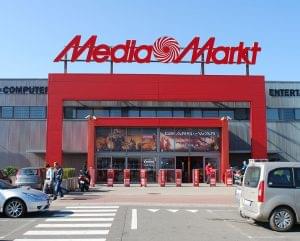The Hungarian example became the model: MediaMarkt innovation, digital vision and European cooperation
Hungary is not only a market, but also an innovation center for MediaMarkt – says Karsten Wilderberg, CEO of CECONOMY and Media-Saturn-Holding, who in an interview with Index spoke about the domestic role, the European economic future, technological breakthroughs and the social impact of AI.
 The “store-in-store” concept started in Hungary and has now been adopted by several countries – reminded Karsten Wilderberg, CEO of MediaMarkt’s parent company. As he said, the model was originally developed specifically for the Hungarian market as part of a joint cooperation with Tesco stores, but the format became so successful that other countries – such as Italy – also adopted the concept.
The “store-in-store” concept started in Hungary and has now been adopted by several countries – reminded Karsten Wilderberg, CEO of MediaMarkt’s parent company. As he said, the model was originally developed specifically for the Hungarian market as part of a joint cooperation with Tesco stores, but the format became so successful that other countries – such as Italy – also adopted the concept.
Hungary on the MediaMarkt map: much more than a market unit
“Hungary is a very important market for us,” said Wilderberg, adding that Managing Director Gábor Szilágyi, who has been strengthening the Hungarian team for a long time, has also contributed significantly to the international successes. The domestic presence is also outstanding in terms of sales, but the CEO emphasized that Hungary is also key to the life of the group as an innovation center.
Instead of further expanding physical stores, the focus is shifting to digital developments, the expert indicated. The company’s goal is to raise digital services and the customer experience to a new level in addition to the existing network, all in line with market trends.
German and Hungarian economies: interdependent
Wilderberg also touched on the future of the German economy, which he believes may now be reaching a turning point. The 500 billion euro German infrastructure development package can give new impetus to the country’s development, and the increase in defense spending also serves stability, he noted. He added that these investments strengthen not only Germany, but the entire European region.
Speaking about the Hungarian economy, Gábor Szilágyi emphasized the importance of German-Hungarian relations. “Most of our exports and foreign trade are with Germany, so we are heavily dependent on it,” he said. At the same time, he also reminded that the government has opened up to eastern markets with a new foreign trade strategy, which could diversify risks.
Related news
Switch to energy-saving and win! – Introducing MediaMarkt’s Energy Saving Program
🎧 Hallgasd a cikket: Lejátszás Szünet Folytatás Leállítás Nyelv: Auto…
Read more >Return comes first: this is how Hungarian households renovate today
🎧 Hallgasd a cikket: Lejátszás Szünet Folytatás Leállítás Nyelv: Auto…
Read more >Related news
(HU) Átadták a SIRHA Budapest 2026 Innovációs Termékverseny díjait
🎧 Hallgasd a cikket: Lejátszás Szünet Folytatás Leállítás Nyelv: Auto…
Read more >HELL CITY has arrived, led by Michele Morrone
🎧 Hallgasd a cikket: Lejátszás Szünet Folytatás Leállítás Nyelv: Auto…
Read more >









